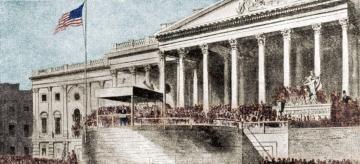Search 176 results
- Remove filter: Contemporary History
- Remove filter: Regions of the World
Filter by
Events
Series
- Students will be able to identify the key tenets of fascism and communism and identify how they contrast with democracy.
- Students will learn how China’s transformation from a state of economic and political collapse to its rise as a global power shapes the motivations of its leaders today.
- Students will be able to analyze the key policies of the Chinese Communist Party (CCP)
- Students will understand that developments in public health have had profound effects on life today.
- Students will understand how the development of modern states has led to greater peace and stability.

In this series of historical mini simulations, students step into the shoes of policymakers to advise the U.S. president on how to respond to major foreign policy moments in U.S. history.

In False Dawn, Steven A. Cook examines why Egypt, Libya, Tunisia, and Turkey did not transition to democracy, explaining how and why Middle East uprisings didn’t succeed.

Rapid economic growth and improved governance across Africa in the twenty-first century are part of the “Africa rising” narrative and have renewed interest in the continent. In Nigeria: What Everyone Needs to Know, John Campbell and Matthew T. Page provide an accessible, one-of-a-kind overview of Nigeria. Using a question-and-answer format, they discuss what makes Nigeria unique, how it operates domestically and internationally, the challenges it faces, and why it has the potential to become Africa’s greatest power.

In chronicling CIA operative Edward Lansdale's adventurous life and approach to counterinsurgency, The Road Not Taken definitively reframes our understanding of the Vietnam War.

In his book A Great Place to Have a War, Joshua Kurlantzick tells the story of the CIA’s covert war in Laos during the Vietnam War. He examines how the country became, surprisingly, a U.S. policy priority, and analyzes why and how the CIA was able to build the war into one of the biggest covert operations in U.S. history. He further uses the Laos war as a prism to examine the CIA’s operations in the global war on terror today.